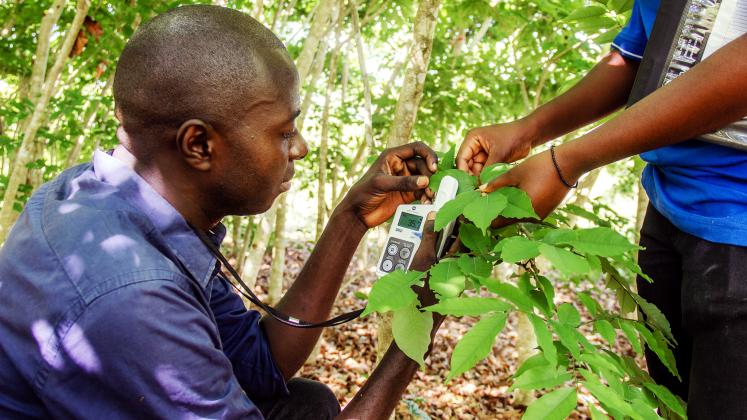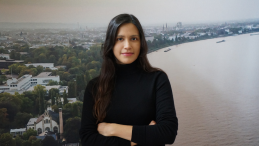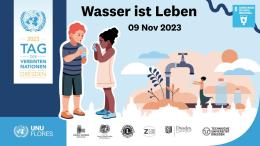This side event of the UN Climate Change Conference 2022 (UNFCCC COP27) in Sharm El Sheikh, Egypt, will explore how to harness scientific knowledge, cooperation, and capacity building for transformative action on climate change and the SDGs. It will discuss gaps and needs for accelerating action, and initiatives to enhance implementation that are rooted in scientific excellence, solidarity, and cooperation. The event will also consider how to enhance education and training for effective implementation of climate change policies.
Participation
This event will be open to all participants of UNFCCC COP27. It will be held at Akhenaten room in area A of the Blue Zone.
The event will be streamed live on the UNFCCC YouTube channel and the UNFCCC Virtual Platform (for registered delegates).
Programme
15:00–15:10 Welcome Remarks
- Abou Amani (Director of the Water Sciences Division, UNESCO)
- Shen Xiaomeng (Vice-Rector in Europe, UNU; Director, UNU-EHS)
15:10–15:20 Opening Remarks
- Hiroshi Ono (Vice-Minister for Global Environmental Affairs, Japan)
15:20–15:35 Keynote
- Taikan Oki (Professor, University of Tokyo)
15:35–16:10 Panel Session
Moderator: Anil Mishra (Chief of Section, UNESCO)
- Koen Verbist (Programme Specialist, UNESCO):
Transformative Pathways for Climate Action in UNESCO’s Biosphere Reserves
- Shinobu Yume Yamaguchi (Director, UNU-IAS):
Regional Centres of Expertise on Education for Sustainable Development
- Ann Van Griensven (UNESCO Chair on Open Water Science and Education, Vrije Universiteit Brussel):
The Role of Citizen and Open Science in Water Resources Management
- Awa Niang Fall (Department of Geography, University of Dakar):
The Importance of Gender and Youth Empowerment in Climate Action
- Philip Osano (Centre Director, Stockholm Environment Institute Africa):
Citizen Science and Sports to Promote Youth Actions on Climate
- Melissa Brown Goodall (Senior Director, Environmental Innovations Initiative, University of Pennsylvania):
Empowering Local Changemakers through the Global University Climate Forum
16:10–16:20 Q&A
16:20–16:25 Key Messages Summary
- Philip Vaughter (Consultant, UNU-IAS)
16:25–16:30 Closing Remarks
- Anil Mishra (Chief of Section, UNESCO)
Organisers
This event will be organised by UNU and UNESCO.
Background
The IPCC has acknowledged widespread and rapid changes in the atmosphere, ocean, cryosphere and biosphere. The increase in frequency and intensity of extremes is endangering food and water security, which is hindering efforts to meet climate targets and achieve the SDGs. So far progress has been inadequate, particularly in Africa, due to a lack of trained human capacity, affordable and locally tested scientific solutions, and institutions and adequate finances. For example, there is a gap in technical and institutional capacity to sustain and improve national measuring, reporting, and verification (MRV) under the Paris Agreement.
Science and technology are powerful agents of change, which are at the heart of the 2030 Agenda as one of the means of implementation under SDG 17. Trusted science, solidarity, and calibration and validation of scientific endeavours through citizen engagement, as well as broader science–policy–society cooperation, are needed to mobilise knowledge, provide pathways to accelerate progress, and pre-emptively address emerging challenges beyond the 2030 horizon. Education will play an essential role in advancing the deep social transformation that is needed, as recognised at COP26.


![smart2[1].png](https://unu.edu/sites/default/files/styles/card_view_small/public/2024-04/smart2%5B1%5D.png?itok=_-ZcLOM5)

